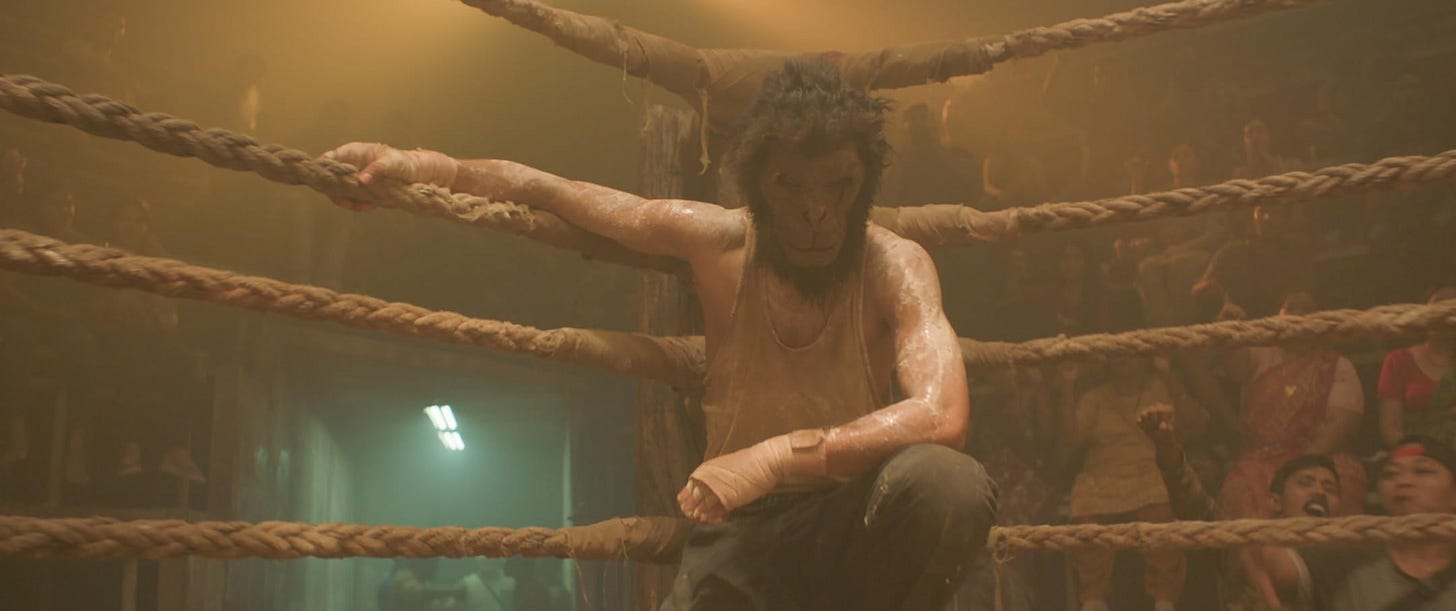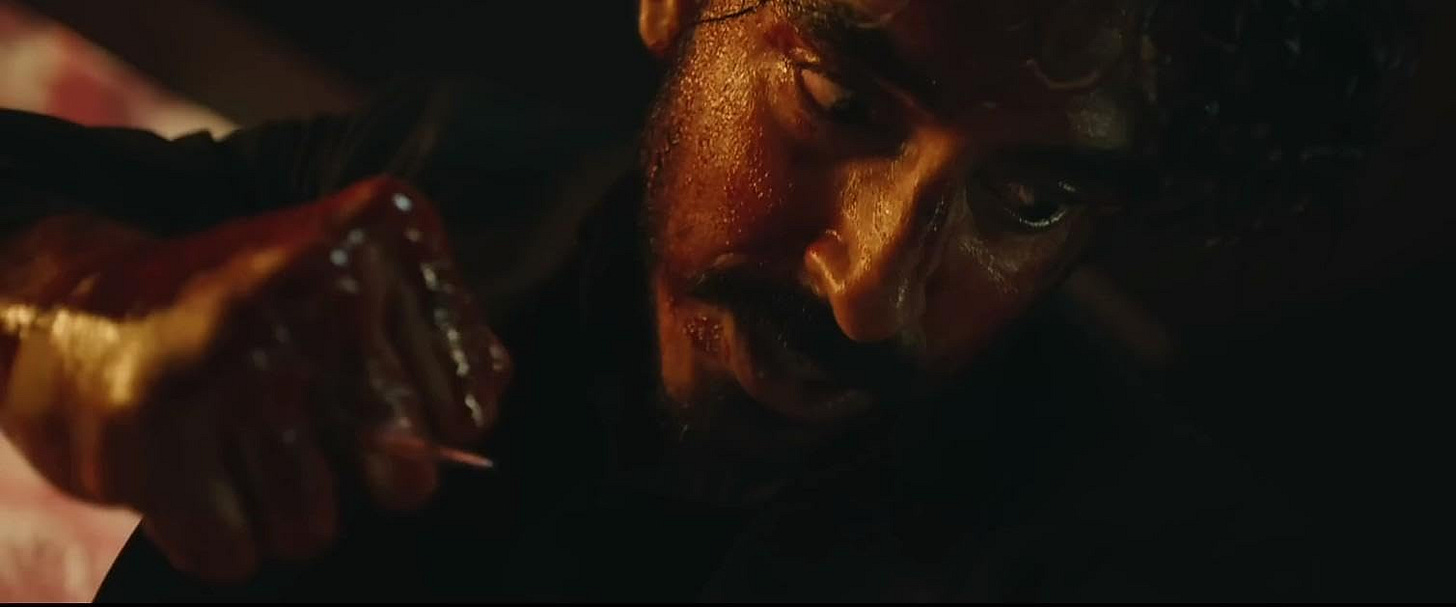‘Monkey Man’ Review
I am, I am, I am Monkey Man … and I can stab anything.
MONEY MAN—THE DIRECTORIAL DEBUT from star and co-writer Dev Patel—is not without its issues. It’s a little too long, a little circular in its plotting, a little loose where it needs to be tight. But one thing Monkey Man absolutely has going for it is a steadfast commitment to brutality of a very visceral sort: You will believe a monkey man can stab a guy in the throat and finish pushing the blade through his windpipe with his teeth.
Patel plays the Kid, a street rat grown wily. He takes dives in bare-knuckle boxing matches put on by the South African Tiger (Sharlto Copley), trying to scrape together some cash. When he wants to get a job at the King’s Club, he has the manager Queenie’s (Ashwini Kalsekar) purse stolen so he can ingratiate himself to her by returning it. He’s willing to do whatever for whomever to work his way up the ladder, to earn his way out of poverty.
At least, that’s how it seems at first. Turns out his climb is less fiscal and more physical: he desires to get his hands around the necks of the men who destroyed his whole world. The Kid wants into the club to get close to the police chief Rana (Sikandar Kher), who killed his mother, and his patron Baba Shakti (Makarand Deshpande), a phony yogi who used political connections to eminent domain the kid’s village to build a sweatshop.
As I suggested above, the plotting is slightly annoying in its circularity: The Kid’s plan is a good one, good enough to get him close enough for the kill a half-hour in. But a feature film can’t be a half-hour long, so he’s forced out and away, into an internal journey where he learns that he must be given something and someone to fight for besides himself. Turns that thing is a temple occupied by trans priests of shiva who are being repressed by the nationalist government, or some such. There’s a fair amount of Indian politics that, frankly, went over my head; suffice to say that like any good movie, the genre trappings are fused with the particular (surging nationalism in India) to bring out the universal (the desire to see oneself as bravely standing for the underdog).
Monkey Man is never a slog—it’s too frenetic for that, too gleefully rhythmic in the editing by Joe Galdo, Dávid Jancsó, and Tim Murrell—but I’d be lying if I said it didn’t occasionally feel like we’re spinning our wheels with the flashbacks and the training montages and the references to the monkey god from which he derives his metaphorical power. Again: It takes us 90 minutes to get right back to where we were 30 minutes into the movie. It’s an issue.
But only a mild one, and one alleviated by the raucous violence that Patel and his fight choreographer Brahim Chab build toward as the film comes to its climax. Patel bristled a bit at the description of Monkey Man as an Indian John Wick, but you can understand the comparison when you see a well-choreographed fight taking place in a neon-lit nightclub with a pulsing score propelling the action forward. You sense the similarities when you watch the Kid duke it out with a handful of guys in a kitchen, fluidly dispatching guy after guy with grim-faced stylishness. And you feel it right in your gut when he starts in with the knife work; Patel never shies away from showing us the brutality and the force required to perpetrate close-up knife work, or what happens when an axe moving at full speed smacks into an unsuspecting bystander.
All in all, Monkey Man is a capable first effort behind the lens for Patel: It’s effective, if a little messy, and something you’ll want to see with an audience so as to fully appreciate the air getting sucked out of the room every time something particularly nasty happens.




